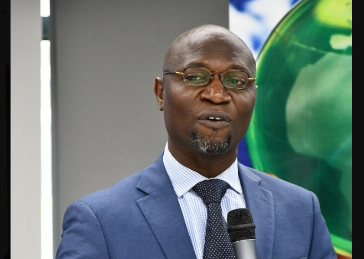The Securities and Exchange Commission (SEC) of Nigeria signals that some cryptocurrency companies applying for registration may not meet the necessary criteria for approval. Dr. Emotimi Agama, Director-General of the SEC, makes this statement during a meeting with applicants involved in the Commission’s Regulatory Incubation (RI) and Accelerated Regulatory Incubation Programme (ARIP), two frameworks designed for the country’s crypto sector.
While addressing the applicants, Agama acknowledges that although some crypto exchanges, including Quidax and Busha, have received preliminary approval under the ARIP, several other applications are still under review. He emphasizes, however, that not all applicants will meet the SEC’s standards for registration.
“Certainly, not all of them will meet the requirements,” Agama says, stressing that the SEC will continue to offer clarity on certain aspects of the process to facilitate smoother evaluations.
Commitment to Transparency and Rigorous Standards
During the meeting, Agama reassures stakeholders that the SEC remains dedicated to maintaining transparency and integrity in the regulatory process. He highlights the importance of offering a fair and equal opportunity to all applicants but notes that the registration process is highly technical and involves ongoing monitoring and surveillance.
“Registration goes beyond onboarding and registration; it requires continuous education, surveillance, and oversight,” Agama explains. He also mentions that the SEC is open to adjusting regulations, incorporating valid feedback to ensure a comprehensive and inclusive framework.
Nigeria’s Leadership in Crypto Regulation
Agama further reiterates Nigeria’s intent to take a leading role in global cryptocurrency regulation. “We aim to ensure that Nigeria stands out in regulating this space,” he says, acknowledging the growing importance of the crypto sector in the country’s economy. He also assures the public that, while the process may have been slower than expected, the SEC is committed to delivering fair and well-considered decisions moving forward.
“We have learned from this process, and in the coming year, we will work to speed up delivery and announcements,” he adds. Agama notes that a new law, which is currently awaiting presidential assent, contains all necessary provisions to provide clear guidance for crypto operators and investors alike.
New Law Targets Crypto Influencers and Promotional Activities
The SEC is also working on a new law designed to regulate the conduct of crypto influencers. The law mandates that all Virtual Asset Service Providers (VASPs) must be registered with the SEC before engaging in promotional activities on platforms such as social media, television, or print media. Additionally, influencers must disclose if they are being paid to promote a digital asset or service. Violations of this law could result in fines of up to ₦10 million or a prison sentence of up to three years.
The SEC’s regulatory efforts are aimed at protecting investors while ensuring the growth of the crypto sector within a well-structured legal framework.












